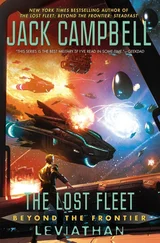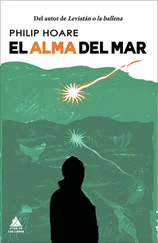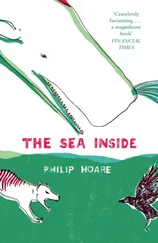Back in New York, Barnum’s whales met with their predicted fate. Victims of equally inappropriate conditions, like fairground fish brought home in plastic bags, they too had died within days–only to be replaced by successive specimens until a fire destroyed the museum in 1865. Futile attempts were made to rescue the last beluga, until a compassionate fireman smashed the tank with a hook, ‘So the whale merely roasted to death instead of undergoing the distress of being poached.’
Faced with this modern captive on Coney Island, I felt a mixture of fascination and pity. It was as out of place as a tiger in a Manhattan apartment. The animal ought to have been swimming free in Arctic waters. Instead its pure white skin was soiled by its civic capture, as if the green algæ that covered the prismatic glass had contaminated it, too. It was struck dumb by the silence of that afternoon, and all the afternoons that stretched ahead. The beluga is the most vocal of all whales, known by sailors as the canary of the sea; here it was as caged as any tame songbird. As it hung there, this shrouded convict imprisoned for someone else’s sins, I dared to touch it through the thick glass, as if something might pass between us. I waited for it to raise a flipper. But it didn’t, so I turned away, unable to take its stare any longer.
After years living in London, the city had begun to press down on me. I sometimes felt as if all the sky were sea, and we citizens mere bottom-feeders, held down by its great pressure as we moved around the caverns and boulders of the streets. I lived on the borders of the City, within sight of the Docklands; over the years I watched the replicating skyscrapers rise up from the London clay like crystal stalagmites in a schoolboy’s jam-jar experiment. At night I would dream that the tower block in which I lived was surrounded by water, inundated by the expected flood; that from my ninth-floor eyrie I could look down to see whales and sharks circling below. In other dreams, I saw a stone-walled harbour and a mass of marine animals caught within it, squirming and writhing to get out.
A place that had represented all my youthful aspirations now felt like a viral infection; and although, like a dose of malaria, I would never quite shake it, I was gradually, incrementally, leaving my old life behind. With the death of my father, and my mother living alone, I found myself spending more time back south. It was a kind of consolation, for grief and loss, for the severing of other emotional ties. I felt set adrift, anchorless–yet also a kind of convergence, a symmetry. It was the comfort of the old, but I saw it anew.
I replaced the treeless view from my ninth-floor flat with daily visits to the shore; the hard edges of the city with unconfined green and blue; stalking flea-bitten pigeons with black and white oystercatchers picking their way along the beach at low tide. My eyes stretched with the relief you feel when you look out over to the horizon from a train window, rather than onto the foreshortened visions of the street. Instead of superstitiously picking up pennies from the street, I combed the beach for stones with holes guaranteed to ward off witches, creating miniature avalanches as they piled up on my dressing table back home. And I stood looking out to sea, watching transatlantic ships sail by like Fitzgerald’s boats borne back ceaselessly into the past, waiting for a future that might never come, like the man who fell to earth. As consoling as the water was, it sometimes served only to make me restless in my suburban exile.
Five years after my first visit to America, I took a train to Boston from New York’s Penn Station. Having bought a map of New England from the bookstall, I began to trace my route along the coast. The name itself–a New England–seemed romantic, optimistic; both familiar and strange at the same time. The names on the map evoked the country I had left behind–Manchester, Norwich, Warwick–as Manhattan gave way to sharp sun and wide beaches and picnicking families, apparently unaware of the train hurtling past behind them. At the end of the line, I walked down to the harbour and boarded the ferry, watching Boston recede in a sequence of small islands, to the toll of a bell fixed to a buoy:
fuller of dirges for the past, than of monitions for the future; and no one can give ear to it, without thinking of the sailors who sleep far beneath it at the bottom of the deep.
Ahead lay mile after nautical mile of sea. I did not know what to expect when I reached the other side, but as the boat docked, everyone else seemed to know where they were going. So I followed them, into Provincetown.
Cape Cod curls out into the Atlantic like a scorpion’s tail. This is new land, carved out by mile-thick glaciers only fifteen thousand years ago. Its inner shores are still more recent, formed of sand carried from the far side of the Cape, an egg-timer adding even as it takes away. This is also the graveyard of the Atlantic. Its beaches bear witness to disaster: entire wrecks buried by the sand, their masts jutting from the dunes, along with human hands. Marconi, who established his radio station on this same shore, a forest of aerials among the marram grass, believed he could tune in to the voices of drowned men still hanging in the ether.
Cape Cod is not so much the end of the land as the beginning of the sea. To Thoreau, who walked here a hundred and fifty years ago, it was a place where ‘everything seemed to be gently lapsing into futurity’. ‘A man may stand there and put all America behind him,’ he wrote; but this is where America began, too. Four centuries ago, the Pilgrim Fathers made first landfall on this sandy spit rather than at Plymouth Rock–just as they first left from Southampton, rather than Plymouth in Devon. In their search for utopia, the exiles found instead ‘a hideous and desolate wilderness’. They had little idea that its native inhabitants had lived on the Cape for millennia.
After a month trudging through its sands, the Pilgrims rejected Cape Cod as fit only for fish and heathens. Provincetown became an outlaw colony beyond their Puritan influence, a reputation embodied by its nickname: Hell Town. Prey to piracy, war and revolution, by the end of the eighteenth century there were still only a handful of houses here. But soon this disputatious, barely legitimate port had entered its greatest prosperity–one that it owed to the whale.
The Pilgrims had regretted their lack of weaponry when they saw how many broad-backed, slow-moving whales lay in Cape Cod Bay. It was as if the animals were anchored to it. There were hundreds ‘playing hard by us, of which in that place, if we had instruments and means to take them, we might have made a rich return’. Unlike the Indians who harvested whales for sustenance, Europeans sought profit in such animals, and had done so ever since the Basques had sailed to Labrador.
By the time the Mayflower set sail, other ships were leaving Dutch ports to carry out commercial whaling in the Arctic. Two of the crew of the Mayflower had whaled off Greenland, and reckoned they would have made £4,000 from the whales of Cape Cod Bay. Indeed, it was the whales that had first prompted the Pilgrims to consider Provincetown as a site, and as Cotton Mather recorded, whale oil became the staple commodity of their colony. The Mayflower herself was pressed into service as a whaler, sailing over the bay from Plymouth.
Provincetown, too, took to whaling with aplomb. By 1737, twelve whale-ships were leaving the port, bound for the Davis Straits. By 1846, Provincetown was home to dozens of vessels. Families such as the Cooks, who owned eight houses in a row in the town’s East End, could look out on their ships tied up in front of their properties much as modern cars are parked in driveways. The building that now houses a fashionable delicatessen was once the Cooks’ chandlery. Close by stood the blacksmith’s, forging harpoons and lances, while a blue plaque on another wall commemorates ‘David C. Scull, the Ambergris King’. Later, the Azoreans and Portuguese came to work in the town’s great salt cod trade. Their descendants still live here, incarnate in such names as Avellar, Costa, Oliveira and Motta, and in the annual Blessing of the Fleet, when their fishing boats are bedecked with flags and a dressed statue of St Peter is carried down to the harbour.
Читать дальше












